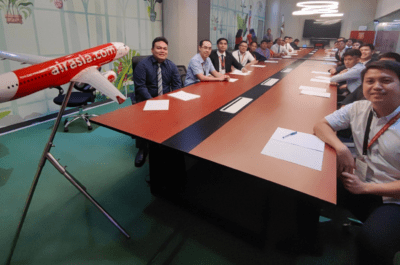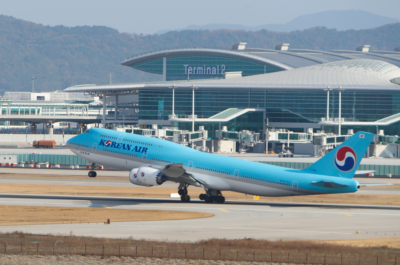Indian corporations and travel management companies are ready to step up technology adoption to manage the escalating costs and inefficiencies in booming corporate travel, which is an industry now worth US$3 billion…
Indian corporations and travel management companies are ready to step up technology adoption to manage the escalating costs and inefficiencies in booming corporate travel, which is an industry now worth US$3 billion[1] a survey commissioned by Amadeus revealed.
According to the research, there is growing demand for technology solutions in India by both corporations and travel management companies (TMC), particularly in relation to online travel management, or Self Booking Tools (SBT).
The survey, carried out among corporations and TMCs in India, revealed that while Indian corporations have yet to embrace SBTs, 57 percent of the corporations surveyed recognise the benefits that SBTs could offer their corporation.
David Brett, President, Amadeus Asia Pacific, said, “This research report confirms that Indian corporations recognise the need to adopt new technologies to cope with the growth in corporate travel and streamline business operations. Amadeus is committed to supporting the growth of the Indian corporate travel industry by providing solutions such as Self-Booking Tools that will increase efficiency and reduce costs for corporations with high volumes of travel.”
The research revealed the top three considerations for adoption of a SBT among the corporate respondents were:
- Policy compliance – 28 percent
- Ease of use – 22 percent
- Cost control – 20 percent
Although most respondents realised the benefits of an online SBT to simplify and manage travel processes, 73 percent had yet to explore the option of rolling out an online programme.
One key benefit for corporations using SBT is access to Low Cost Carrier (LCC) content. While many companies globally do not use LCCs for corporate travel, India is somewhat of an exception, with 60 percent of respondents indicating their company does use LCCs.
TMCs surveyed also recognised the benefits of offering an online corporate solution in their portfolio, viewing it as a competitive advantage in the notoriously tight Indian travel market. Seventy-five percent of TMCs surveyed indicated they felt that the Indian market is ready for SBTs.
Ankur Bhatia, Executive Director, Bird Group & MD Amadeus India feels that it’s only a matter of time before more Indians begin using self-booking tools. “Indians are very rational and meticulous in consumer behaviour and as soon as a value is identified with a certain trait, efforts will be made to gain maximum utility. While Indians, with easier access to lower cost labour, are not in the habit of self-service, increase in the number of LCCs, OLTAs and online services provided by full-service carriers and their efforts to promote this functionality has increased public awareness of the advantages of SBT.”
“We are constantly looking at ways of utilising and developing technology to increase the flexibility, and convenience of travel in India. The ability to book and buy online as well as reserve seats, meals, special requirements from anywhere and at anytime is one of the most flexible and convenient methods available to passengers,” said Bhatia.
The Indian market research follows a recent global study conducted by Cranfield University in collaboration with Amadeus that revealed companies could save an average of 25.6 percent on external travel management costs and up to 9.1 percent on airline ticket spend through the adoption of SBTs.
Vicky is the co-founder of TravelDailyNews Media Network where she is the Editor-in Chief. She is also responsible for the daily operation and the financial policy. She holds a Bachelor's degree in Tourism Business Administration from the Technical University of Athens and a Master in Business Administration (MBA) from the University of Wales. She has many years of both academic and industrial experience within the travel industry. She has written/edited numerous articles in various tourism magazines.


































































